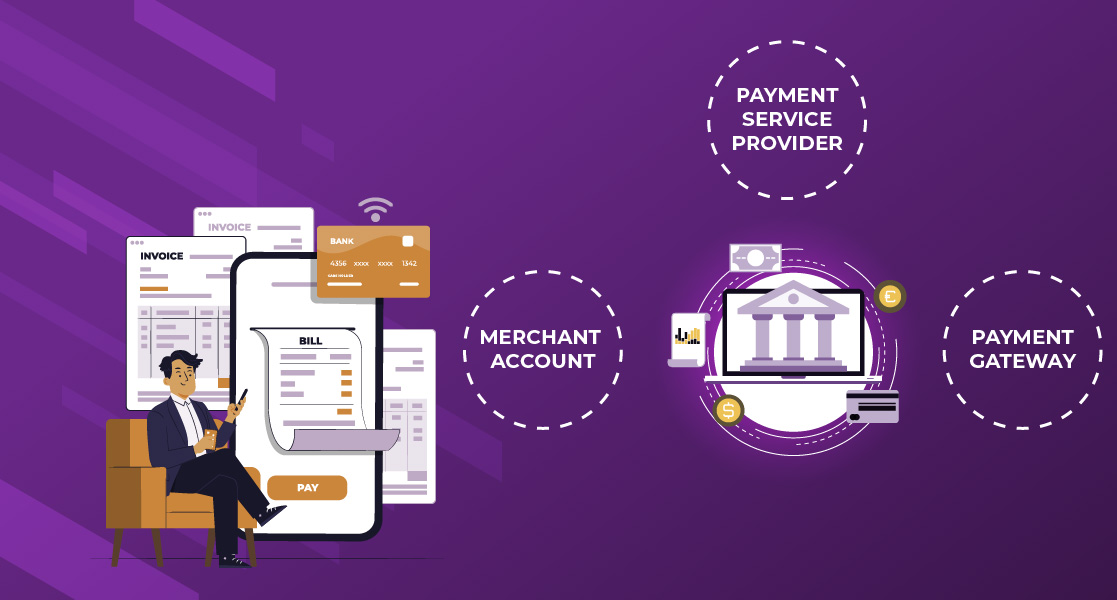Businesses, irrespective of their size, require a payment system to facilitate effortless transfer of funds.
A payment gateway, payment processor, and merchant account are the basic requirements for businesses to receive funds from their customers.
While a payment processor is a vendor who facilitates card payments, payment gateways and merchant accounts are other essentials that businesses need to successfully process online payments with ease.
This blog discusses merchant accounts vs payment gateway and their importance for a business.
What is a merchant account?
A merchant account is crucial for the successful processing of cashless transactions as it is here that funds are ultimately deposited.These are bank accounts that receive funds from transactions made through credit and debit card payments. Here, the bank undertakes the responsibility of opening and controlling its account.
Once a payment is processed, the banking body will transfer the funds to the merchant account. The business will then be responsible for these funds in its business account. Merchant accounts are capable of accepting multiple forms of payments, such as credit cards, debit cards, and ACH payments.
Types of merchant accounts
Merchant accounts can be divided into two categories –-
-
PSPs (Payment Service Providers)
These are low-maintenance, easy-to-set-up and provide more conducive for small and medium businesses -
ISOs (Independent Sales Organizations)
These are more suitable for large businesses and can easily handle higher transaction volume. But these are more complex to set up and manage.
-
Benefits of a merchant account for merchants
Here is how a merchant account is beneficial for SMEs and other businesses –-
-
- The merchant account provider groups completed transactions and sends them as a single batch to the merchant’s account. It helps with more accessible funds management and higher accountability.
- Clients can use this account to facilitate fraud checks. Merchant accounts flag payments before the transaction is completed to prevent loss of funds.
- The merchant can use the funds in their merchant account to mitigate risks and handle returns more efficiently.
- They also offer additional functionalities to the customer and enable them to make payments in any payment mode of their choice.
-
What is a payment gateway?
A payment gateway connects the customer’s bank and the merchant’s account. It not only refers to online merchants but all types. It helps integrate processing capabilities with the client’s business operations and enables capturing payment details for customer transactions. The payment gateway then routes the information to a payment processor or an acquiring bank to do fraud screening and then routes the transaction to the card network. It forwards a confirmation message when the payment is processed. Alternatively, a failure message is forwarded to the payer.Benefits of a payments gateway for merchants
A payment gateway is an integral part of every business with an online presence. Here are the benefits of a capable payments gateway –-
-
- Merchant gateways facilitate a swift and seamless checkout experience for the end customers. It helps improve the overall shopping experience and helps generate higher revenues.
- With a good percentage of impulsive purchases, faster checkouts can help in improved sales.
- These offer compliance with the security standards prevalent in the industry, such as PCI DSS.
-
What is the difference in merchant account vs payment gateway?
| Merchant Accounts | Payment Gateways |
|---|---|
| It is unique to a business | These are universal and manage multiple businesses in a single network |
| These can be used to hold and transfer funds | These help facilitate payment |
| These are controlled by the merchant account providers | These are managed by third parties and integrate with the client’s website |
